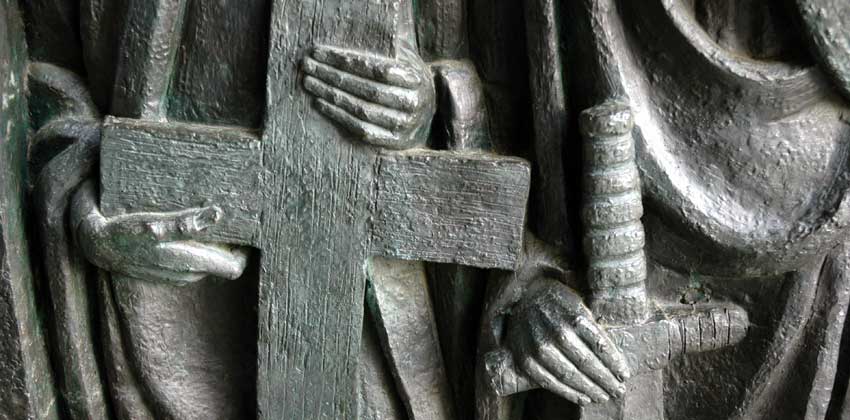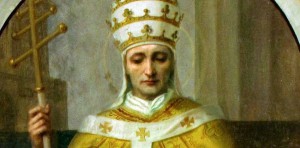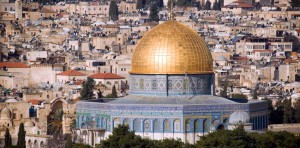The Kings over the Water
11th century Europe was as turbulent as Alba and England. Smaller kingdoms were fighting for supremacy and a feudal order gradually appeared. The so-called Dark Ages became the Medieval Age, a time of political, economic and religious change. Macbeth was part of this world, not a distant bystander.
Papal Power
In the years prior to the appointment of Leo IX as Pope in 1049, the papacy had become regarded as a source of shame and scandal. On a wave of reformist sentiment, Leo IX set about transforming the papacy into the leader of western European Christianity – a ‘papal monarchy over the church’.
- Pope Leo IX
- Dome of the Rock, Jerusalem
Macbeth can hardly have been unaware of what was going on, and this perhaps explains his decision to go on a pilgrimage to Rome in 1050. His motives were doubtless as much political as spiritual.
East Meets West
Expansionist Muslim states in the east came into increasing contact with more and more assertive European kingdoms (including the papacy) and conflict seemed, with the benefit of hindsight, inevitable. In the final years of the 11th century Pope Urban II called for a crusade to recover Jerusalem. Today, in the 21st century, we are still living with the consequences of the events of 1000 years ago.








